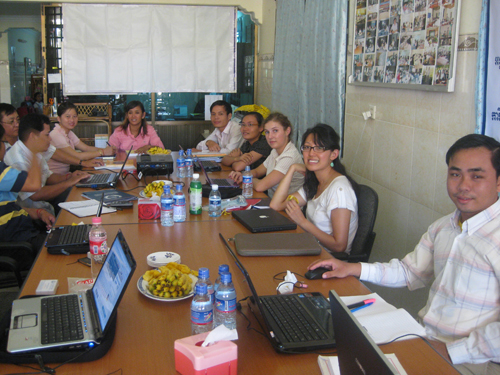
As a part of my graduate studies at the Fletcher School of Law and Diplomacy I will spend 13 weeks as a Legal Intern for International Bridges to Justice (IBJ). The work of IBJ in Cambodia is threefold: 1) Ensuring that the rights of the accused are respected and providing adequate, well-trained lawyers to represent them 2) Informing the public of their rights as an accused and 3) Putting the laws that are already on the books into practice in the courts.
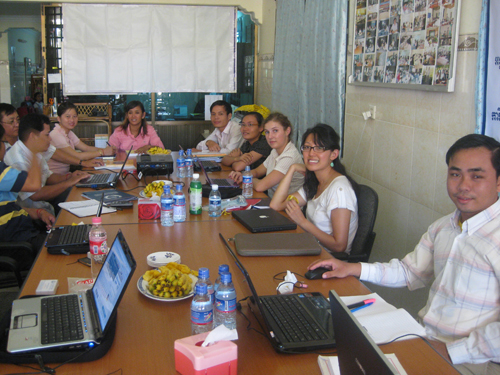
Another one of IBJ’s underlying goals is to eliminate the practice of torture in Cambodia. Torture is well-documented as a form of carrying out criminal investigation and extracting confessions from the accused in Cambodia and other countries where more complex methods of investigation such as forensic science or even something as simple as fingerprinting are not the norm. The idea is that torture can be prevented or mitigated when the legal system (police, prisons, and courts) are held accountable by the presence of a lawyer representing the accused. Providing lawyers for the accused is not only a way of implementing the legal rights of Cambodian citizens and preventing torture, it is a step towards building the rule of law and strengthening the judicial system.
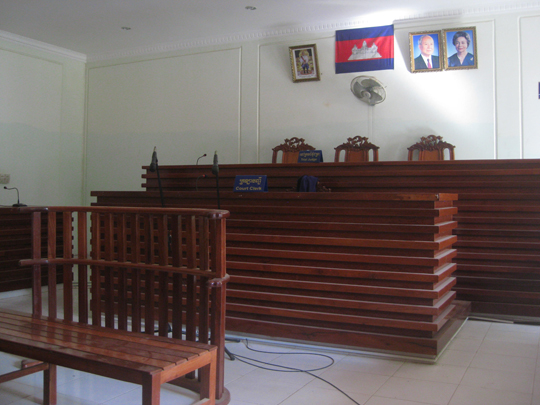
The need for legal aid in a country like Cambodia where there is currently no state-sponsored legal aid system (i.e. free lawyers for those who cannot afford one) cannot be understated. Cambodian law includes provisions that require individuals accused of a felony to be represented by a lawyer. Without NGO-sponsored legal aid lawyers, those who are accused of felonies would either be tried without legal representation or continue to sit in jail waiting for a lawyer. In some countries legal aid is provided by the government. Ideally the Cambodian government would support a government-funded legal aid system but currently they do not have the funds or capacity to do so and thusIBJ continues to work with the Cambodian government towards that goal. In the meantime, one or two other nonprofits like IBJ try their best to fill the gap in legal aid.
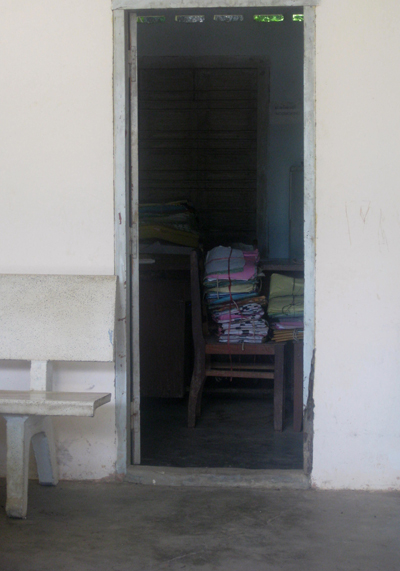
Working with an organization that supports a small number of lawyers in rural and urban provinces that would otherwise have zero lawyers for the poor is without a doubt a rewarding experience. Hopefully we are also making important contribution as well. As an intern I am conscious of the balance between the time and energy that interns extract from the organizations and companies they work with and the time and energy they contribute to that organization or company during their internship. There are currently five legal interns, a journalist, and a videographer interning with IBJ Cambodia this summer who provide both a great presence and, seemingly, an occasional burden on the small Phnom Penh and rural offices.
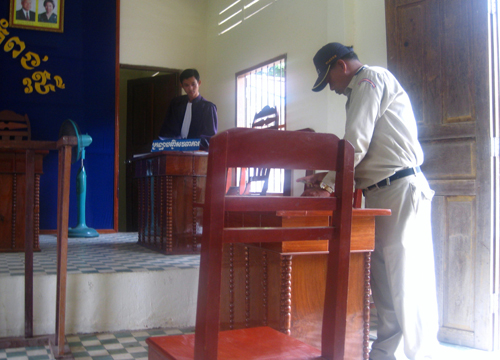
As far as day-to-day work goes, there is a good deal to be done. I spent much of June learning about the Cambodian legal system, the Cambodian context (historical, political, social, etc.) and about IBJ’s approach to providing legal aid, education, including the overarching goal of strengthening the legal system and rule of law. In addition to helping to conduct research and write funding proposals, and giving English lessons to some of our Cambodian colleagues, each legal intern is paired to work with one of the IBJ lawyers. I’ve had the pleasure of working with Ms. Pheak, accompanying her on prison visits and court dates to see her in action representing the accused at trials in the Kandal and Kampon Speu provinces neighboring Phnom Penh. An experiential learner at my core, I continue to learn the most from these experiences, out of which I am developing profiles and case studies that illustrate successes and areas for improvement in the legal aid system.
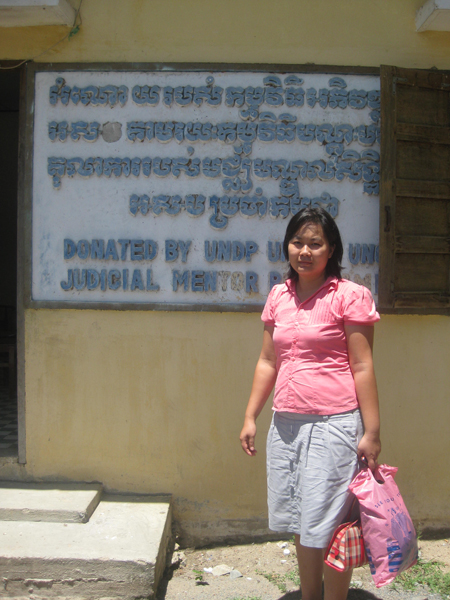
There are so many elements that contribute to the creation and establishment of an independent, accountable, and sound legal system. As I look critically and hopefully at the Cambodian legal system I continue to wonder where the crux of these complex issues lies. After the first trial I observed, I saw witnesses and family members unnecessarily scared and confused from court processes and procedures and thought education – both basic education and legal rights education – was the crux. I thought it unrealistic for people who have very little education or experience with the legal system to understand their legal rights if they have no context for what those rights mean or how to exercise them. On the other hand, I know there are millions individuals all over the world with low-literacy and little education who are demanding their rights be respected, calling for fairness, justice, saying no to corruption, and working to strengthen democratic practices in their communities.
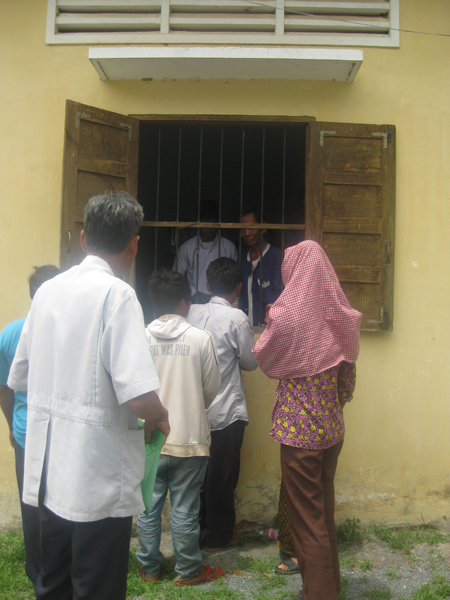
Since that initial visit to the court I have seen the confluence of combating institutionalized corruption, establishing systems of accountability, the need for additional intensive police training, and the overall lack of lawyers in country as the cruxes of that same system. Of course no single crux is the problem nor the solution to these challenges. And little by little individuals working from a variety of angles must contribute to improve their corners and cross-sections of the labyrinth.
For me at this very moment that means getting back to a questionnaire I was developing!